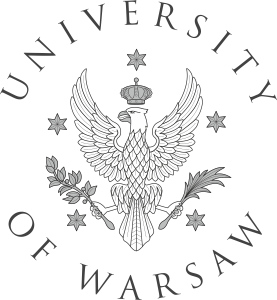27 grudnia 2022
Position of adiunkt (a group of science positions) in the H2020 ERC-STG project entitled „Chirality-sensitive Nuclear Magnetoelectric Resonance” financed by the European Research Council is open for application. Project leader: dr hab. Piotr Garbacz, prof. ucz. Deadline for applications: 26 January 2023. For more info see >> pdf
14 grudnia 2022

The University of Warsaw is offering an unpaid 30-hour online Polish language course for its international employees. The registration deadline is 27th December.
International employees will have a possibility to attend online Polish language classes twice a week between 9th January and 24th March, 2023. The courses can be attended by both academic and non-academic employees, provided that they are employed at the University on the basis of a contract of employment or an appointment.
The courses’ programme is focused on developing basic communication skills that might be useful everyday while studying and living in Poland.
The courses will be conducted by the employees of the Centre of Polish Language and Culture for Foreigners >>
Registration and organisation
Depending on a person’s level of proficiency in Polish, the courses will be organised from 9th January till 24th March in the following manner:
- A0 group – for beginners, on Tuesdays and Thursdays at 18:00 – 19:30;
- A1 group – continuation of the course (3rd trimester) aimed for those who have already learnt Polish for at least half a year, classes are held on Mondays and Wednesdays at 8:30 – 10:00;
- A2 group – dedicated to people who have already learnt Polish for at least one year, meetings are on Mondays and Wednesdays at 17:30 – 19:00.
To attend the mentioned courses, prior registration is necessary on the course page on the Kampus Platform (CAS account is required to log in) before 27th December, 10:00.
Course implemented under Action II.2.3. “Support of the relocation process of employees from abroad by introducing solutions facilitating involvement of new foreign employees to work at UW and preparation to stay in Poland” of the Excellence Initiative – Research University (IDUB) at the University of Warsaw.

More information about the meetings is available on the Welcome Point website or via an e-mail: welcome.event@uw.edu.pl.
Source: www.en.uw.edu.pl
07 grudnia 2022
Job offer for a technician (engineer) position in NAWA (Polish National Agency for Academic Exchange) Polish Return project No. PPN/PPO/2018/1/00098/U/00001: „Novel methods for dynamics and structural studies of biomolecules by Nuclear Magnetic Resonance in the solid-state with ultrafast magic-angle spinning”. Principal Investigator: Jan Stanek, PhD (Novel Methods of Spectroscopy group). Deadline for applications: 19 December 2022. For more info see >> pdf
The journal ChemComm (RSC) published a paper on the research conducted under the supervision of prof. Katarzyna Jarzembska entitled „An optically reversible room-temperature solid-state cobalt(III) photoswitch based on nitro-to-nitrito linkage isomerism”. The work was featured on the front cover of this journal.
Photoswitchable materials find a variety of applications in the field of optoelectronics, medicine, solar energy conversion technologies or data storage. Industrially desirable materials of this kind should operate under ambient conditions, be relatively stable, cheap, non-toxic and easy to synthesize with high efficiency. In turn, the light-induced transformation should be selective, efficient, controllable, reversible and reproducible. The group of prof. Jarzembska (http://www.photocrystallography.eu) showed that a simple nitro complex of cobalt(III) has most of the above features, which distinguishes it from the so far widely studied nitro complexes of other transition metals. The isomerization reaction from the nitro (Co-N(O)2) to nitrito (Co-ONO) binding mode proceeds with good efficiency (> 55%) in a solid state at room temperature, which is unique for this class of compounds (they are usually photoactive below 260 K). Importantly, the nitro-to-nitrito isomerization can be triggered optically both ways, i.e. ca. 470 nm light induces the nitro-to-endo-nitrito transformation, while 570−660 nm – the reverse process. The study opens up a new direction towards effective optically-reversible photoswitchable compounds working under ambient conditions, which is of great importance regarding potential future in technological applications.
The research and publication of the article were possible thanks to the support of the PRELUDIUM BIS grant (2019/35/O/ST4/04197), whereas the „open access” formula was financed by the IDUB UW.
Bibliographic data and link to the article:
K. A. Deresz, R. Kamiński, S. E. Kutniewska, A. Krówczyński, D. Schaniel and K. N. Jarzembska, Chem. Commun., 2022, 58, 13439
https://pubs.rsc.org/en/content/articlelanding/2022/CC/D2CC05134F
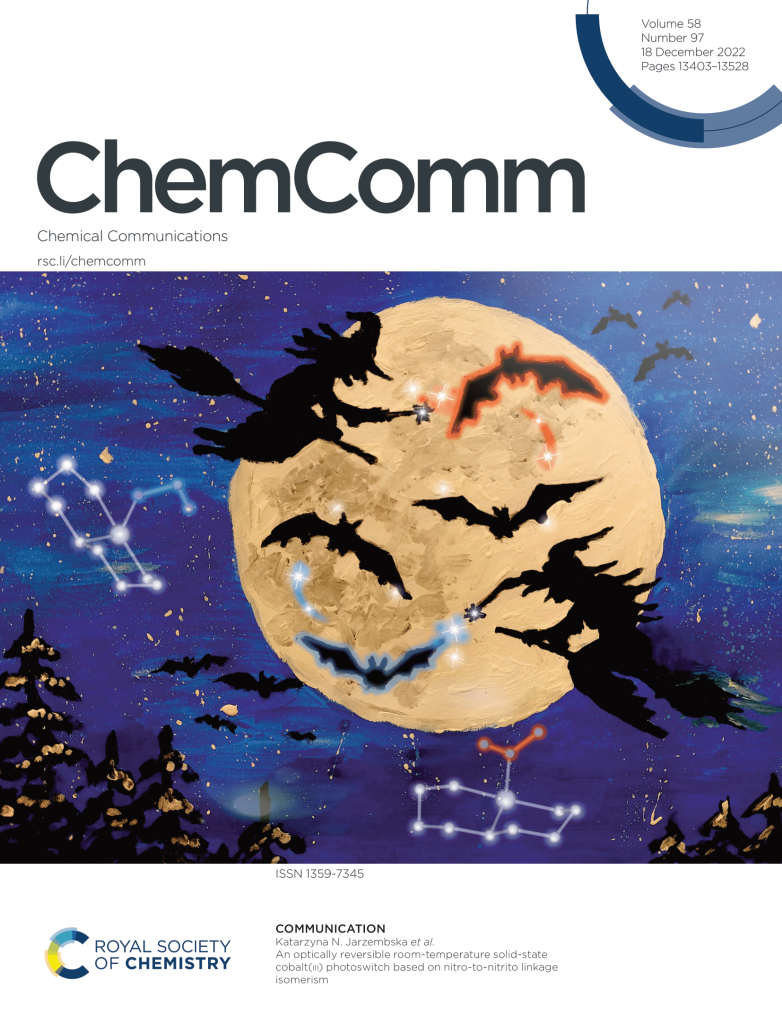
01 grudnia 2022

Welcome Point, an information point for international students of the University of Warsaw, is organising two informational meetings on legal issues concerning residence in Poland. The events are dedicated to UW students and doctoral candidates from non-EU countries.
The meetings are conducted by Dr Łukasz Wieczorek, the Dean’s Representative for Legalisation of Stay, the Faculty of Political Science and International Studies, the University of Warsaw.
Topics on the agenda cover:
- legalisation of residence in Poland (visa, permanent residence permit);
- a procedure of application for a residence permit;
- Polish descent and Card of the Pole holders’ rights;
- special solutions for foreigners caused by the outbreak of the coronavirus pandemic.
Registration and organisation
The onsite meetings are held on 8th December (Polish) and 15th December (English) between 13:15-14.45, on the Main Campus of the UW at Krakowskie Przedmieście.
To register for a meeting in Polish on 8th December, complete a form >>
The registration is open until 2nd December, 10:00.
To register for a meeting in English on 15th December, complete a form >>
The registration is open through 9th December, 10:00.
More information about the meetings is available on the Welcome Point website >> or via an e-mail: welcome.event@uw.edu.pl.

Źródło: www.en.uw.edu.pl
29 listopada 2022
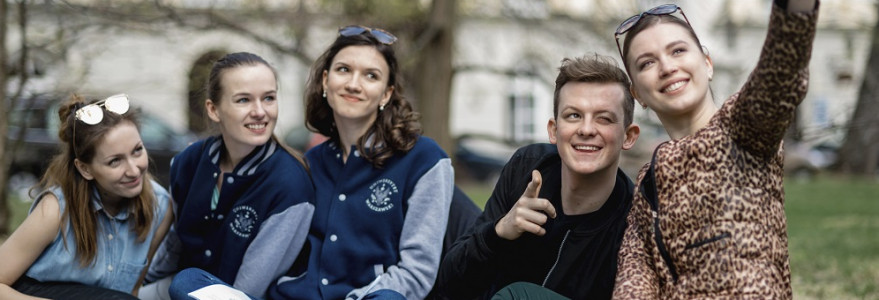
As part of the 4EU+ educational collaboration, UW academic teachers can offer their courses conducted fully (including assesment) in an online or hybrid mode to be made accessible via online enrolment procedure to students and doctoral candidates of the 4EU+ Alliance five partner universities (4EU+ Shared courses). Proposals for shared courses must be submitted by 13 January.
Since the academic year 2020/2021, UW lecturers from 22 faculties and other units have made a total number of 165 shared courses available to 4EU+ participants. Over 250 students from five 4EU+ partner universities participated in courses offered by the University of Warsaw.
Courses must be taught in one of the languages of the 4EU+ Alliance partner universities (German, French, Italian, Danish or Czech) or in English, and correspond thematically to one of the 4EU+ Alliance Flagships.
Proposals for shared courses must be submitted by 13 January 2023 using the table provided in the Google Sheet >>
Academics can submit as 4EU+ shared courses only the currently existing courses that are part of the teaching offer prepared for UW students.
For more information on sharing courses with 4EU+ Alliance students, please follow this link >>
For questions related to the 4EU+ Alliance teaching offer, please contact Dr Marta Jaworska-Oknińska: m.jaworska-okninska(at)uw.edu.pl, from the Office for International Research and Liaison and 4EU+ Alliance Local Office.
Source: www.en.uw.edu.pl
28 listopada 2022
Position of adjunct (a group of science positions) in the Opus project entitled „Optical emission insight into processes occurring in the ion-selective sensors operating under electrochemical trigger – towards ion-selective spectrofluoroelectrochemistry” financed by NCN is open for application. Project leader: prof. dr hab. Agata Michalska. Deadline for applications: 8 January 2023. For more info see >> pdf
25 listopada 2022
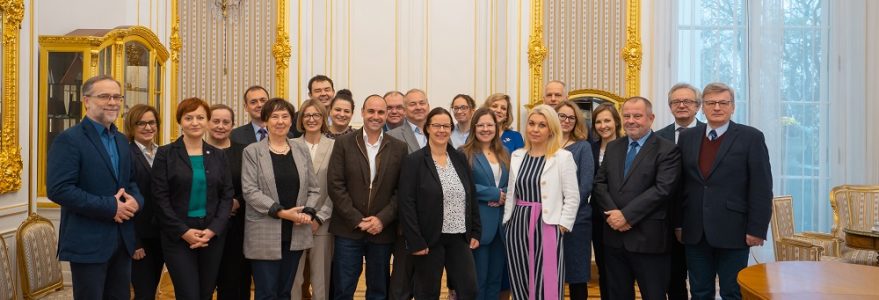
On 22nd November, the University of Warsaw was acknowledged the renewed HR Excellence in Research. The award is given to institutions which follow strict and high standards of research working conditions, antidiscrimination and transparent recruitment as set in the European Charter for Researchers and the Code of Conduct for the Recruitment of Researchers.
“The principles set in the European Charter for Researchers and the Code of Conduct for the Recruitment of Researchers (Charter and Code) are key issues for the UW as it is duly emphasised in the Statute of the University of Warsaw. The principles are actually strictly connected with the long-term strategy of the UW,” Prof. Sambor Grucza, Vice-Rector for Cooperation and Human Resources, said.
In February 2022, in order to renew the HR Excellence in Research award, the University of Warsaw submitted the Human Resources Strategy for Researchers (HRS4R), the Gap Analysis, the Internal Review, the Action Plan for 2022–2027, and the OTM-R Questionnaire to the European Commission.
The HRS4R and the Action Plan are intended to specify coherent, ambitious, yet realistic, evidence-based strategy to strengthen previous achievements within the HRS4R for 2015–2021, as well as facilitate new challenges in research by the University of Warsaw. The works on the implementation of the Charter & Code are conducted by two teams: the Steering Committee, led by Prof. Sambor Grucza and responsible for monitoring and supporting the implementation process, and the Working Group, led by Prof. Julia Kubisa and in charge of the implementation of the Charter & Code principles.
Experts from the European Commission
Evaluation by experts from the European Commission is one of the stages of the HR Excellence in Research renewal process. Thanks to meetings with representatives of the university authorities, researchers, doctoral candidates and administration staff, it is possible to assess and evaluate the quality of the progress, strengths and weaknesses of the HR strategy, and actions undertaken to abide principles of the Charter & Code as for ethics, equality, development, training and mobility.
In October the European Commission experts visited the university to evaluate the Charter & Code implementation process at the University of Warsaw, and obtain feedback from the university community, especially from academics and doctoral candidates. The experts also presented an initial analysis of the implementation process at the UW.
On 22nd November, following the proper renewal phase, the University of Warsaw was acknowledged the HR Excellence in Research logo for the further period. The award, which was obtained on 4th July 2016, is an obligation to comply with the HR policy set in the European Charter for Researchers and the Code of Conduct for the Recruitment of Researchers.
The next evaluation of the Charter & Code implementation at the UW will be conducted in three years.
Source: www.en.uw.edu.pl
21 listopada 2022
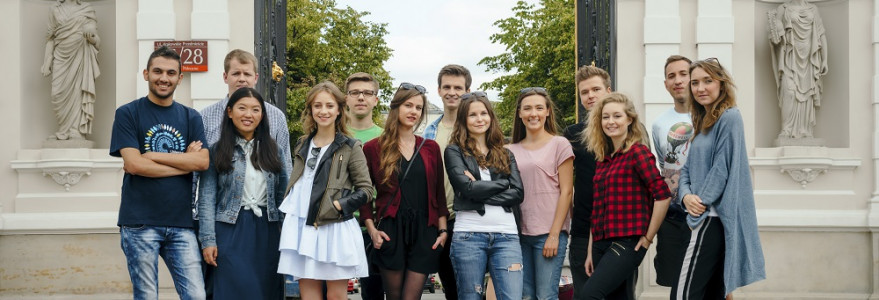
Welcome Point together with the Office for Foreigners and the Department of Foreigners of the Mazowieckie Voivodship Office is organising training on the legalisation of stay of international students and employees of the University of Warsaw.
The training is dedicated to employees of the University of Warsaw, who deal with international students and international employees. Particular modules are conducted by experts from the Office for Foreigners and the Department of Foreigners of the Mazowieckie Voivodship Office. The meeting will cover topics such as legalisation of the stay of international students and employees in I and II instance, as well as student mobility.
Training agenda:
- MODULE I, 9:30 – 13:00: Training on legalising the stay of foreign students at the UW;
- MODULE II, 13:30 – 16:30: Training on legalising the stay of foreign employees of the UW.
During the meeting Polish is a language of communication.
Registration and organisation
- The meeting starts 24th November (Thursday) in the university building at Dobra 55, room no. 1.128.
- Prior registration is highly recommended via the form not later than Tuesday, 22nd November, 10:00.
- More details are available on the Welcome Point website or at an e-mail: welcome.event(at)uw.edu.pl.

Source: www.en.uw.edu.pl
14 listopada 2022
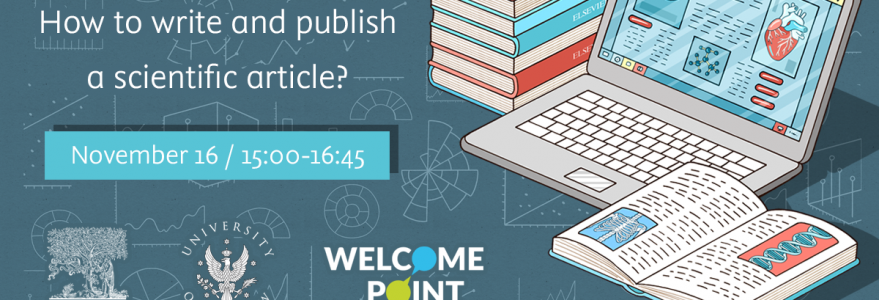
Writing and publishing scientific papers, publishing ethics guidelines, case studies and best practices are discussed during an English language webinar for young researchers “Author Workshop. How to write and publish a scientific article?”. The workshop is held on 16th November.
The University of Warsaw together with Elsevier is organising a webinar “Author Workshop. How to write and publish a scientific article?”. The workshop will be held on November 16, 15:00-16:45, on the Zoom platform.
During this training session, participants will learn how to write a high-quality scientific article. Presented tips and best practices in scientific writing come from experience of many scientists, editors and readers. The training is mainly aimed at young researchers, although more experienced academics are also welcome.
Agenda:
- best practices in creating a successful scientific article;
- the publishing process and ethical matters – case studies for authors;
- valuable tools that can support authors in writing a manuscript;
- question-and-answer session.
The training will include examples of online work, and participants will be able to take an active part in the session.
Registration and organisational information
To participate in the training session, registration is required via the link >>
The webinar is held on 16th November, through 15:00 – 16:45.
English is the language of instruction. Participants will communicate via ZOOM.
All eligible registrants will receive a link to the webinar one day before the training. All participants will receive certificates of participation and access to the recording of the session after the event.
The workshop will be conducted by Paula Milewska, a trainer and consultant of Elsevier, with 14 years of experience in working with academic libraries in Poland as well as other countries in Central and Eastern Europe.
More details can be found on the Welcome Point web page >>
Source: www.en.uw.edu.pl


